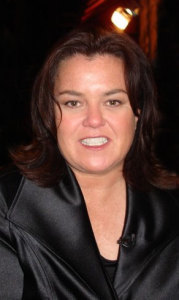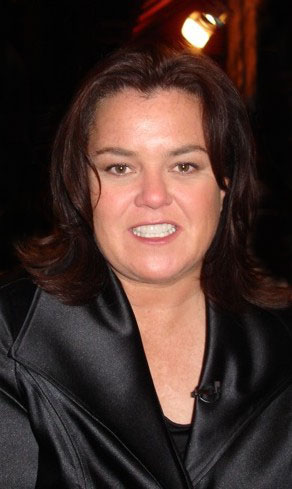
Rosie O’Donnell’s prenuptial agreement with a confidentiality provision isn’t keeping her second divorce out of the media limelight. In 2012, O’Donnell married Michelle Rounds, two years later, they adopted a daughter, and last November the couple split up and filed for divorce in California. In the last few months, the couple have been battling over custody of their daughter.
O’Donnell and Rounds currently have a stipulation and order for joint custody (according to Classicalite). Rounds filed a motion claiming that in order to continue the 50%-50% timeshare, O’Donnell should be subject to random drug testing.
According to TMZ, Rounds claimed that O’Donnell drinks excessively, smokes marijuana and eats marijuana laced food on a frequent basis. While Rounds told TMZ that she isn’t seeking full custody, that site and others claim that Rounds has already filed pleadings asking for just that. In May, the judge ordered that no drug testing would take place and custody would remain the same. Additionally, TMZ reports, the judge “railed” on the parties for talking about this case in social media.
Requests for “full” or sole custody are often raised in custody cases. Pursuant to Family Code §3020(a), a court’s primary concern is to “assure the child’s health, safety and welfare.” An appropriate custody order must assure that children have “frequent and continuing contact with both parents” except where such contact would not be in their best interest (Family Code §3020(b)). The Family Code expressly establishes no “preference” or “presumption” for a particular type of custody or visitation order.
For Rounds to succeed in obtaining sole custody, she would need to show that frequent contact with O’Donnell is inappropriate.
When a court is specifically faced with a request for sole custody based on drug use of the other parent, a court must determine if the use is ‘habitual.’ A California court can order testing pursuant to Family Code §3041.5 if a judicial determination is made based on a preponderance of the evidence that there is “habitual, frequent or continued use” of a controlled substance.
Since Rounds and O’Donnell are required to keep this case confidential, the exact details of the evidence presented to the judge are unknown. If the judge only had Rounds’ testimony, it is unsurprising that s/he would not order drug testing. A California judge would likely question Rounds’ motives in testifying that O’Donnell has a drug problem given Rounds’ interest in obtaining sole custody.
About the authors:
Sarah Van Voorhis, a Certified Family Law Specialist, and Ariel Sosna are founding partners of
Van Voorhis & Sosna. Follow them on Twitter at @VanVoorhisSosna.


